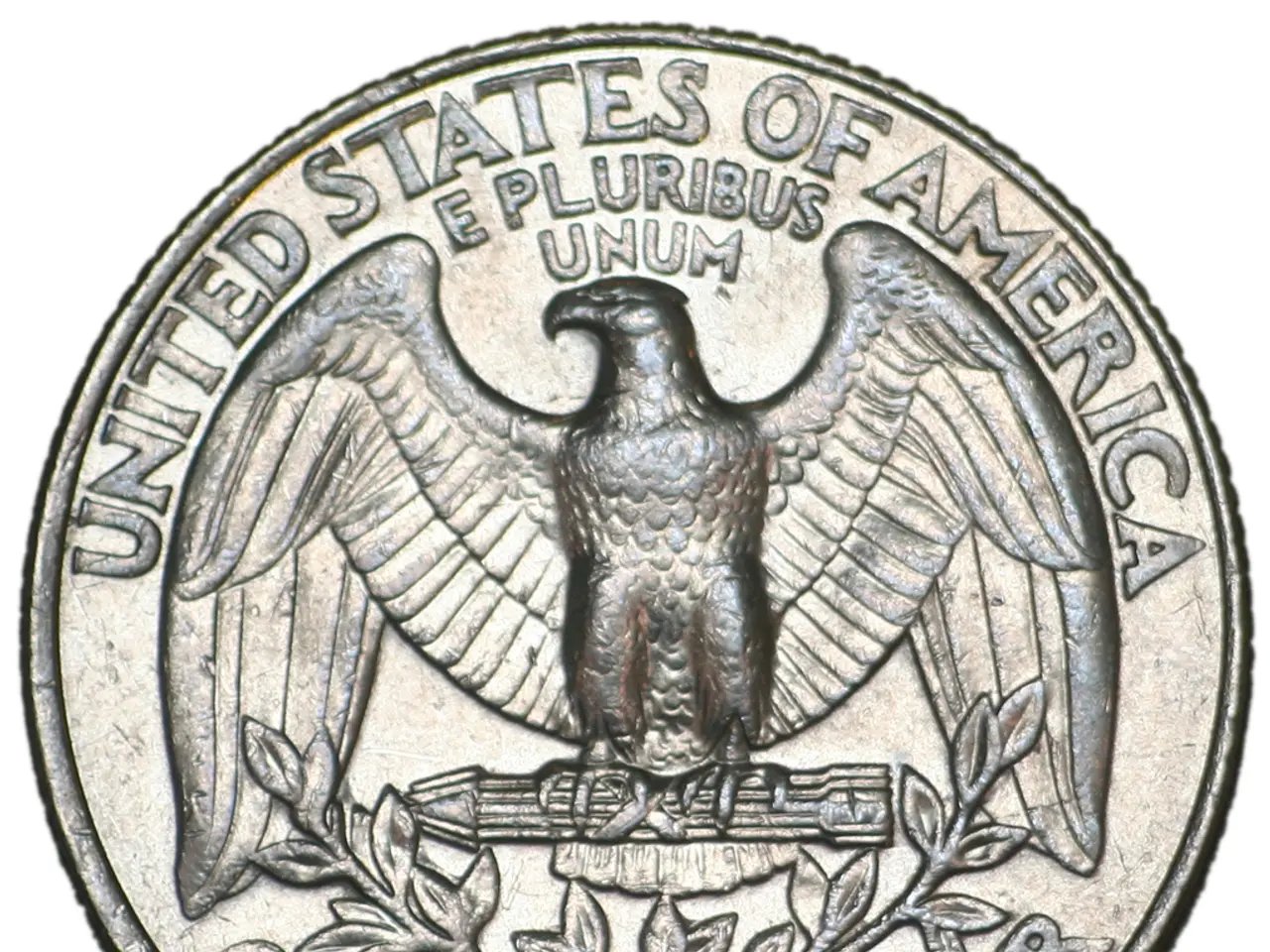Financial giants Goldman Sachs and BNY Mellon collaborate to digitalize money market funds, a move aimed at streamlining transactions and modernizing investment strategies.
The collaboration between Goldman Sachs and Bank of New York Mellon (BNY) marks a significant step towards bridging traditional finance and decentralized finance (DeFi). The partnership aims to digitize Money Market Funds (MMFs) through the use of blockchain technology, allowing for near-instant settlement and ownership tracking on distributed ledgers[1][2][3].
This initiative brings several key advantages to the transition towards DeFi:
- Immutable and Transparent Record-Keeping: By using blockchain as a secure, tamper-proof ledger for MMF ownership records, the project introduces transparency and trust into traditional financial instruments, core features of DeFi[1][3].
- Efficient and Seamless Transfers: Tokenization enables near-instant transfers and settlements of MMF shares, overcoming the slow, batch-based processes typical in traditional finance. This efficiency aligns with DeFi’s goal of real-time financial operations[2][5].
- Liquidity and Flexibility: Tokens representing MMF shares can be utilized as collateral instantly, facilitating margin trading and other financial activities without manual reconciliation delays. This unlocks new liquidity and flexibility within institutional workflows, resembling DeFi’s decentralized collateral management[1].
- Institutional Adoption: Unlike most tokenized MMFs that target crypto-native users, this solution is firmly institutional, representing a meaningful adoption of DeFi concepts by mainstream financial players. This institutional entry helps accelerate wider acceptance and integration of DeFi technologies into established financial markets[1][5].
- Regulatory Compliance and Risk Management: While blockchain helps with ownership transparency and transfer efficiency, BNY Mellon remains the official record-keeper. This hybrid model reflects a transitional phase where traditional custodial roles coexist with decentralized infrastructure, facilitating regulatory compliance and risk management[1].
This partnership demonstrates how traditional finance is adopting blockchain-based tokenization to enhance efficiency, liquidity, and transparency, gradually incorporating DeFi principles without abandoning regulatory and institutional frameworks. The project propels the evolving financial system towards a more digital, real-time architecture with decentralized elements embedded within conventional finance[1][3][5].
The infrastructure shift also transforms how institutional cash management is approached, automating fund processes and ensuring compliance through smart contracts. The collaboration aims to foster greater interoperability among financial institutions, with BNY Mellon's integration signaling broader ambitions for seamless cross-platform interactions[4].
As more institutions follow suit, the boundaries between traditional and decentralized finance are likely to blur, setting the stage for a more interconnected and accessible global financial system. The success of this model could lay the groundwork for similar applications in other financial products, including equities, bonds, and real estate assets[6]. However, evolving regulatory landscapes present uncertainties around compliance requirements for digital assets across different jurisdictions[7].
Enhanced cybersecurity measures are essential as blockchain networks grow to support high-volume institutional transactions[8]. The programmability of blockchain tokens could enable new financial solutions such as automated collateral systems and real-time risk management tools[9]. The involvement of established institutions like Goldman Sachs and BNY Mellon lends significant credibility to the initiative[10].
In conclusion, the collaboration between Goldman Sachs and BNY Mellon is a significant step towards bridging the gap between traditional finance and DeFi, offering a promising path for a more efficient, transparent, and interconnected global financial system.
[1] https://www.goldmansachs.com/corporate/press-center/press-releases/2021/goldman-sachs-and-bank-of-new-york-mellon-announce-collaboration-to-create-blockchain-based-infrastructure-for-trading-tokenized-money-market-funds.html [2] https://www.cnbc.com/2021/07/21/goldman-sachs-and-bny-mellon-announce-partnership-to-create-blockchain-based-money-market-funds.html [3] https://www.forbes.com/sites/billybambrough/2021/07/21/goldman-sachs-and-bny-mellon-team-up-on-blockchain-for-tokenized-money-market-funds/ [4] https://www.reuters.com/business/finance/goldman-mellon-team-up-blockchain-based-money-market-funds-2021-07-20/ [5] https://www.coindesk.com/business/2021/07/21/goldman-sachs-and-bny-mellon-unveil-blockchain-based-money-market-funds/ [6] https://www.bloombergquint.com/global-economics/goldman-sachs-bny-mellon-team-up-to-create-blockchain-based-money-market-funds [7] https://www.coindesk.com/policy/2021/07/21/goldman-sachs-bny-mellon-unveil-blockchain-based-money-market-funds/ [8] https://www.cnbc.com/2021/07/21/goldman-sachs-and-bny-mellon-announce-partnership-to-create-blockchain-based-money-market-funds.html [9] https://www.forbes.com/sites/billybambrough/2021/07/21/goldman-sachs-and-bny-mellon-team-up-on-blockchain-for-tokenized-money-market-funds/ [10] https://www.reuters.com/business/finance/goldman-mellon-team-up-blockchain-based-money-market-funds-2021-07-20/
- This partnership in banking-and-insurance industry, between Goldman Sachs and Bank of New York Mellon (BNY), also involves technology, as they aim to digitize Money Market Funds (MMFs) using blockchain technology, thereby offering a more efficient and transparent financial business.
- The exploration of blockchain technology by these finance giants may lead to a greater integration of technology and business, advancing the industry's potential to manage assets in a decentralized manner, in line with the principles of finance and the emergence of decentralized finance (DeFi).




